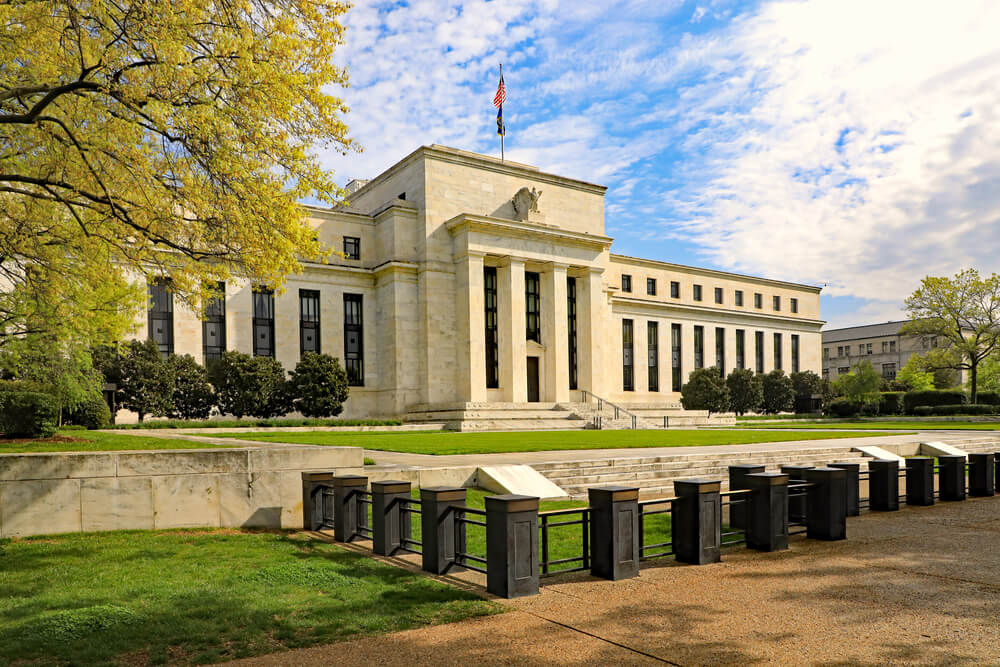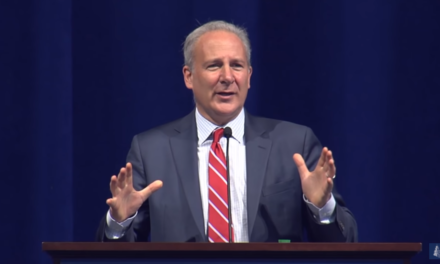Most areas of the country saw a slight improvement in economic activity in the spring, but those gains were tempered by concerns over rising trade tensions, the Federal Reserve said Wednesday.
In its latest report on economic conditions nationwide, the Fed said businesses reported solid hiring in a number of sectors ranging from retail to manufacturing and construction. However, in many areas employment growth was being constrained by tight labor markets, forcing some companies to boost wages to attract workers.
The Fed report, known as the beige book, will be used for discussion when the central bank meets to set interest rate policy on June 18-19. Fed Chairman Jerome Powell said Tuesday that the Fed was prepared to “act as appropriate” to protect the economy from any fallout from a widening trade war.
Powell’s comments triggered a huge stock market rally as investors viewed the remarks as a signal that the Fed, which raised interest rates four times last year, would consider cutting rates in coming months if needed. Investors are now revising their expectations this year from steady interest rates to at least one rate cut.
Powell spoke at a two-day Fed conference in Chicago that is examining ways to improve Fed operations. Lael Brainard, a Fed board member, said Wednesday in an interview with Yahoo Finance that “trade policy is definitely a downside risk to the economy. … Our job is to sustain the expansion and we’ll need to see going forward what that means for policy.”
Trump in early May announced he was raising tariffs on China from 10% to 25% to pressure on Beijing to agree to administration demands to reform its trade practices and reduce America’s huge trade deficit with China.
The president has also opened another front in the trade war by announcing he would impose a 5% tariff on Mexican goods beginning Monday and will raise that tariff as high as 25% unless Mexico agrees to do more to stop the flow of illegal immigrants into the United States.
The beige book found business contacts in some districts expressing fears about the rising level of tariffs even before the Mexican tariffs were proposed.
The Fed’s Philadelphia regional bank said that “tariffs remained a key concern for many manufacturers.” The Philadelphia Fed said that the much of the impact from the initial 10% tariffs on Chinese goods had been absorbed along the supply chain. But manufacturers worried that much more of the higher 25% tariffs would have to be passed on to consumers.
The Fed’s Dallas regional bank said that contacts in various service industries were expressing increased worries about the trade dispute with China with “numerous mentions of uncertainty surrounding trade policy.”
© The Associated Press. All rights reserved.




